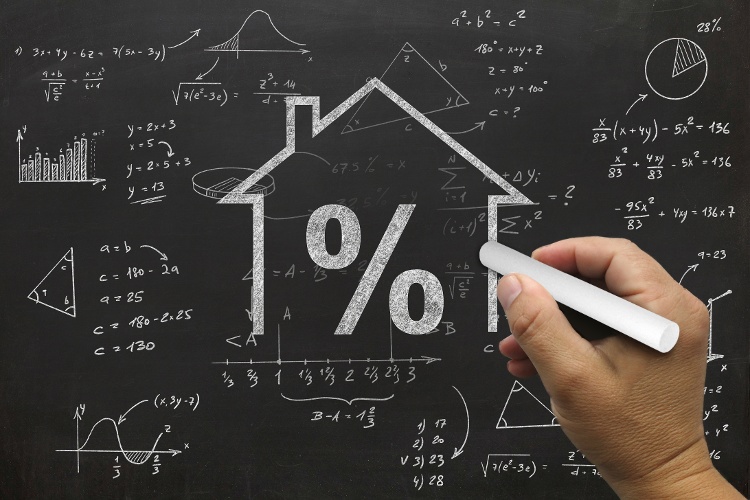Seller closing costs can easily be 8% or more of the sales price of the property, including paying the real estate commission. So, if you’re selling a home with a contract purchase price of $100,000 you can expect closing costs of at least $8,000.
That’s a big bite out of your expected profits.
The good news is that as long as you have enough equity in the property, you won’t have to bring any cash to the closing table since fees are deducted from your proceeds. Better yet, there are things you can do to keep your closing costs low.
Let’s begin by a quick look at how a real estate closing works, then review the closing costs you can expect when selling a property. Finally, we'll cover how to reduce your closing costs to keep more of your well-deserved profits.
How a Real Estate Closing Works
A real estate closing is the legal process used to transfer property ownership from one party to another. The sale closes when both the buyer and the seller have met every obligation described in the purchase contract.
Although the real estate closing process varies from state to state, closings generally follow these steps:
- Terms and conditions of the purchase contract have been met by both parties
- Buyer or buyer’s lender wire transfer funds needed to close on the property purchase
- Seller pays off all outstanding loans and liens on the property to provide clear title to the buyer
- Third party such as an escrow company or real estate attorney ensure all monies and documents needed to close are exchanged and recorded, and that all closing fees are paid by both parties

Closing Costs for Sellers
Real estate closing costs for sellers consist of a variety of different expenses and are generally due and payable at closing.
Here’s a breakdown of the average closing costs most sellers can expect, variable costs depending on your personal situation, and the potential for capital gain tax liability:
Typical seller closing costs
- Real estate agent commissions (usually between 5% - 6% of the sales price)
- Mortgage balance payoff, including any prorated interest
- Prorated share of property taxes through the date of closing, unless taxes have been paid in advance
- Attorney fees if used for closing
- Owner’s title insurance paid for by the seller
- Escrow and closing fees of about 1% of the sales price, often split 50-50 between seller and buyer
- Transfer taxes vary by state and local law and are usually based on the property value
Miscellaneous seller costs
- Pre-listing home inspection to discover unknown defects before putting the property on the market
- Home staging if the property is vacant to make the home more attractive to potential buyers
- Repairs requested by the buyer after the property is inspected
- Pest control treatment if wood destroying organisms are found during the inspection
- Utility costs such as water and electricity that must be left on while the vacant property is being marketed for sale
- Credits to buyer closing costs that were negotiated as seller concessions
- Unpaid HOA dues or special assessments up to the date of closing
- Liens or judgments against the property or the seller
- Mortgage prepayment penalty, depending on the terms of the existing loan
- Home warranty purchased for buyer
- Costs of moving to a new property and establishing new utility services
Capital gains tax
- Investors will be liable for a long-term capital gains tax of 0%, 15%, or 20% depending on the income bracket for property that has been held more than one year, although a 1031 exchange can be used to defer the payment of any capital gains tax owed
- Homeowners can exclude up to $250,000 of profit if filing single or $500,000 of profit for married couples filing jointly, as long as the property is the primary residence for two out of the previous five years and the tax break hasn’t been used on another home sale within the past two year

Seller’s Closing Statement
Also known as a settlement statement, the seller’s closing statement is an itemized list of all fees and credits in the transaction that show the net profit to the seller. The format of a seller closing statement varies from state to state, but always includes the following information:
Escrow company
- Title company name and address
- Escrow file number
- Escrow officer name
- Settlement location
Buyer and seller
- Property address
- Buyer and seller names
- Seller lender
- Settlement date (closing date)
- Recording date (date of deed transfer and official recording)
- Disbursement date (when funds are disbursed)
Financial data
- Property sales price
- Price of personal property (if not included in the sales price)
- Earnest money deposit (from buyer)
- Loan amount outstanding
- Existing loan assumed (if seller is assuming part or all of the existing loan)
- Seller credit to buyer (for closing cost assistance or a credit in lieu of repairs)
Prorations and adjustments
- School taxes
- County taxes
- HOA dues
- Tenant rent prorations (for rent already paid that belong to buyer as of closing)
- Tenant deposits transferred to buyer
Title and escrow charges
- Owner’s title insurance (paid by seller)
- Owner’s policy endorsement
- Title search fee
- Insurance binder (buyer fee)
- Escrow settlement fee
- Notary fee
- Signing fee
Real estate commission
- Real estate commission to listing agent
- Real estate commission to selling agent
- Other real estate fees (such as a referral fee due)
Recording and transfer fees
- Deed recording fee
- Mortgage recording fee
- Other recording fees
- Transfer tax
Miscellaneous charges
Note: Following fees may apply to buyer, seller, or negotiated between the parties
- Pest inspection fee
- Survey fee
- Homeowner’s insurance premium
- Home warranty fee
- HOA dues
- HOA special assessment
- HOA transfer fee
- Special hazard disclosure
- Utility payments
- Assessments
- School taxes
- City/town taxes
- County taxes
- Attorney fee
Payoff(s)
- Seller loan balance due
- Interest on payoff loan (accrued up to day of closing)
- Additional loan payoff fees (such as wire fee, recording fee, and reconveyance fee)
Totals
- Due from/to seller (net proceeds after seller closing costs have been paid)

Buyer vs. Seller Closing Costs
Buyer closing costs normally range between 2% - 5% of the property purchase price and typically include:
Loan and property fees
- Points (a fee paid directly to the lender at closing in exchange for a reduced interest rate)
- Application fee
- Origination fee
- Underwriting fee
- Mortgage insurance premium
- Prepaid interest
- Appraisal fee
- Home inspection fee
- Credit report fee
- Flood certification fee
- Other loan fees
Impounds
- Homeowner’s insurance
- Mortgage insurance
- City taxes
- School district taxes
Fees that haven’t been prepaid are due on the day of closing. Normally the buyer will bring additional cash to close unless some or all of the buyer closing costs are included in the loan.

Can a Seller Pay The Buyer’s Closing Costs?
A seller can agree to pay some or all of the buyer’s closing costs but may reduce your net proceeds, depending on the option you use.
There are some valid reasons for netting less money on the sale of your property. For example, you may forecast that the real estate market is entering a normal downward cycle, and want to sell before the market shifts to a full-blown buyer’s market.
Or, you may be rebalancing your property portfolio and exchanging investments with large amounts of equity but minimal cash flow to more affordable rental property in smaller markets with higher rental yields. You’ll make a little less from the sale than you’d like but will more than make up the difference when you reinvest.
There are two different ways to structure a seller concession to help pay for the buyer’s closing costs. In both cases, we’ll assume you’re selling a house with a purchase price of $100,000 and the buyer is requesting a $3,000 closing credit:
Option #1: Give the buyer a seller concession of $3,000 and keep the sale price at $100,000. By doing this you’ll net $97,000 on the sale before paying your own seller closing costs.
Option #2: Increase the purchase price to $103,000 and agree to a seller concession of $3,000. With this option, you’ll net $100,000 before expenses. However, you’ll need to make sure your property appraises for the new higher purchase price. Also, your real estate commission will also increase by $180, assuming you’re paying your agent a 6% commission.
How to Reduce Your Closing Costs as a Seller
As a real estate investor, there are a number of things you can do to reduce your seller closing costs:
- Shop around for the title company that offers the best deal, then ask for a real estate investor discount to save even more money
- Title companies will sometimes reissue a new owner’s title insurance policy at a reduced rate, especially if you’ve owned the property for just a few years
- Negotiate a lower commission structure with your real estate agent, making sure that they still offer the selling agent the normal commission split
- List and sell your rental property with Roofstock, which will reduce your total real estate commission to just 3%









